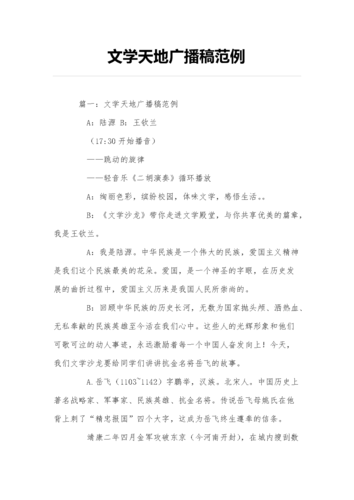文学与当代史丛书
Title: Literature and Contemporary Studies in English
In the realm of literature and contemporary studies, the English language serves as a gateway to a vast landscape of ideas, narratives, and cultural expressions. From classic novels to modern poetry, from critical theories to sociopolitical commentaries, the Englishspeaking world offers a rich tapestry for exploration and analysis. This article delves into key aspects of literature and contemporary studies in English, shedding light on their significance and providing insights for enthusiasts and scholars alike.
Literature: Exploring the Depths of Human Experience

At its core, literature is an exploration of the human experience—its triumphs, struggles, complexities, and nuances. Through the lens of language and narrative, literature offers a mirror to society, reflecting its values, conflicts, and aspirations. English literature, with its diverse range of genres, periods, and voices, provides a comprehensive view of the human condition across centuries and continents.
Classic Works and Canonical Authors
English literature boasts a treasure trove of classic works and canonical authors whose influence transcends time and borders. From William Shakespeare's timeless plays to Jane Austen's astute social commentaries, these works continue to captivate readers and inspire generations of writers and scholars. Engaging with classic literature not only offers insights into historical contexts but also fosters a deeper understanding of universal themes such as love, power, and identity.
Modern and Contemporary Voices
While classic literature forms the foundation of English literary tradition, modern and contemporary voices continually reshape the landscape. From the modernist experimentation of Virginia Woolf to the postcolonial narratives of Chinua Achebe, contemporary literature reflects the evolving realities of a globalized world. Exploring works by diverse authors from different cultural backgrounds enriches our perspectives and challenges conventional notions of identity and belonging.
Interdisciplinary Approaches: Literature in Dialogue
Literature does not exist in isolation but engages in dialogue with other disciplines, enriching interdisciplinary discourse and fostering new insights. Literary theory, for instance, offers frameworks for analyzing texts through various lenses such as feminism, postcolonialism, and ecocriticism. By incorporating interdisciplinary approaches, scholars can explore literature's intersections with history, philosophy, psychology, and beyond, revealing deeper layers of meaning and significance.
Contemporary Studies: Navigating Complex Realities
In the realm of contemporary studies, the English language serves as a tool for navigating the complexities of modern society and culture. From critical analyses of current events to explorations of emerging trends, contemporary studies offer valuable perspectives on the everchanging world we inhabit.
Cultural Critique and Social Commentary
Contemporary literature and cultural studies provide a platform for critical reflection on pressing social issues such as inequality, globalization, and environmental degradation. Through novels, essays, and academic discourse, writers and scholars engage in dialogue about the challenges facing humanity in the 21st century. By examining cultural artifacts and media representations, contemporary studies shed light on power dynamics, identity politics, and cultural hegemony, prompting readers to question dominant narratives and envision alternative futures.
Digital Humanities and Technological Innovation
In an era defined by rapid technological advancement, contemporary studies also encompass the digital humanities—a field that explores the intersection of technology and humanistic inquiry. From digital archives to computational text analysis, scholars employ innovative methods to analyze literary texts, uncover patterns, and visualize data. By harnessing the power of digital tools, researchers gain new insights into literary trends, reader responses, and the dissemination of cultural artifacts in the digital age.
Guiding Principles for Scholars and Enthusiasts
Whether delving into classic literature or contemporary studies, scholars and enthusiasts alike can benefit from embracing certain guiding principles:
1.
Diversity and Inclusivity
: Explore a diverse range of voices and perspectives, including those historically marginalized or underrepresented.2.
Interdisciplinary Engagement
: Foster dialogue with other disciplines to enrich literary analysis and contextual understanding.3.
Critical Inquiry
: Approach texts and cultural phenomena with a critical lens, questioning assumptions and interrogating power dynamics.4.
Ethical Considerations
: Navigate ethical dilemmas with sensitivity and reflexivity, especially when engaging with topics related to identity, representation, and social justice.5.
Lifelong Learning
: Embrace a spirit of curiosity and lifelong learning, recognizing that literature and contemporary studies are dynamic fields that continually evolve.By embracing these principles and engaging with the rich tapestry of literature and contemporary studies in English, scholars and enthusiasts can deepen their understanding of the world and contribute to meaningful intellectual discourse.
Conclusion
In conclusion, literature and contemporary studies in English offer a multifaceted lens through which to explore the complexities of human existence and the dynamics of modern society. From classic works to contemporary voices, from critical theory to digital humanities, the English language serves as a conduit for intellectual inquiry and cultural exchange. By embracing diversity, fostering interdisciplinary dialogue, and approaching texts with a critical mindset, scholars and enthusiasts can navigate this rich terrain with curiosity, empathy, and scholarly rigor.









